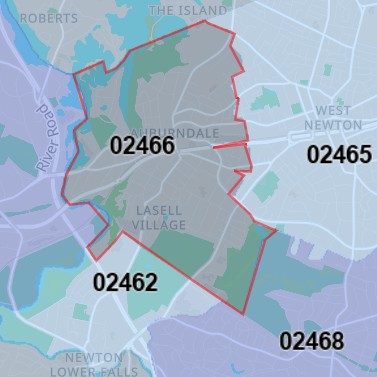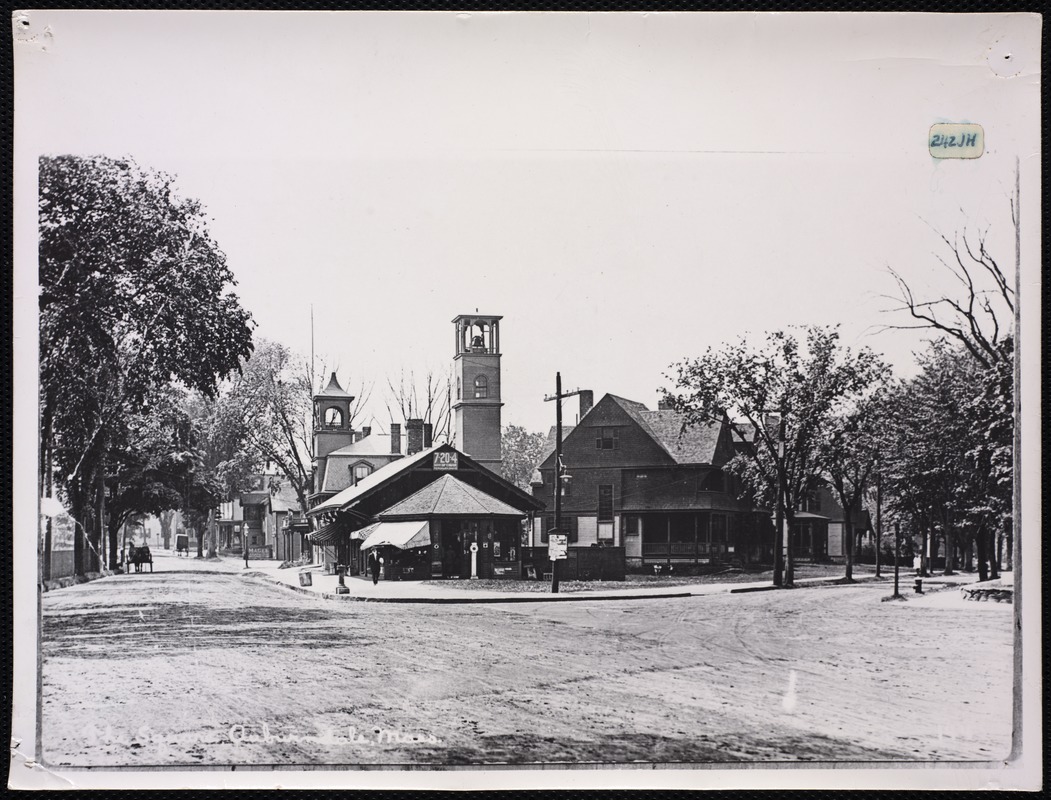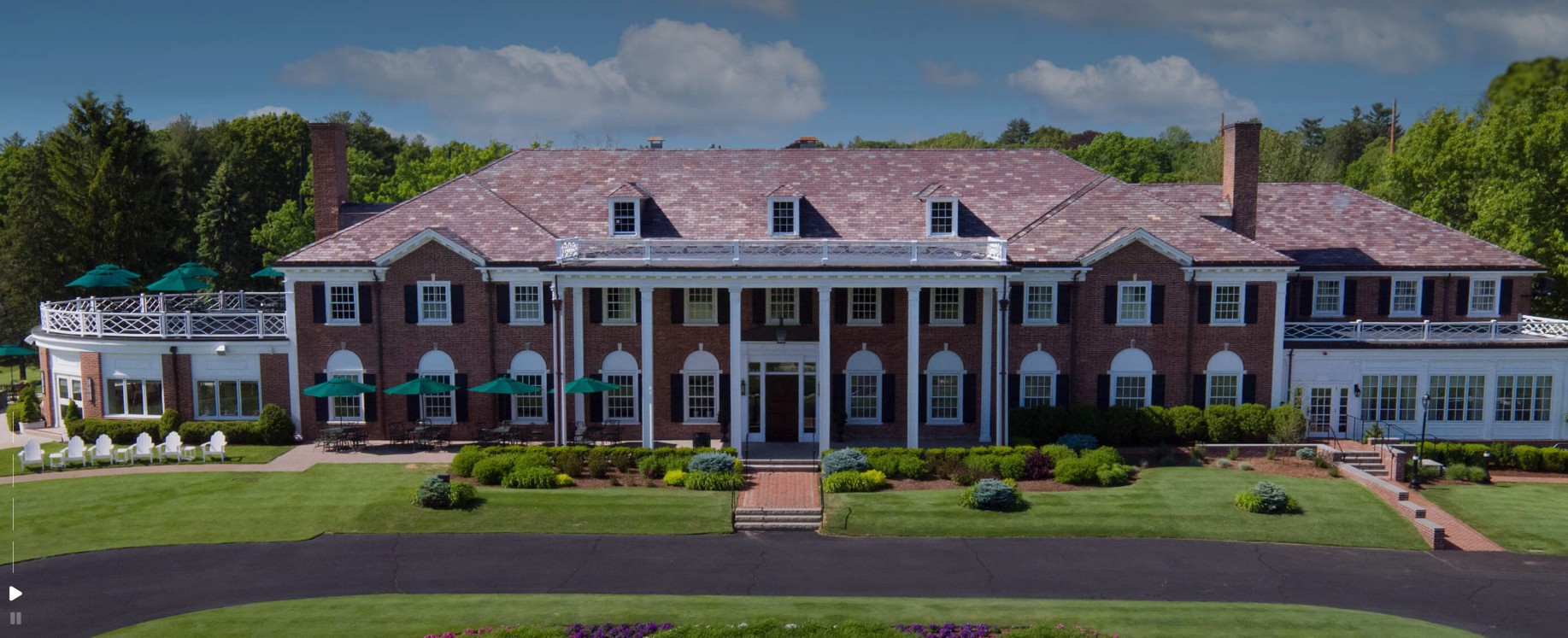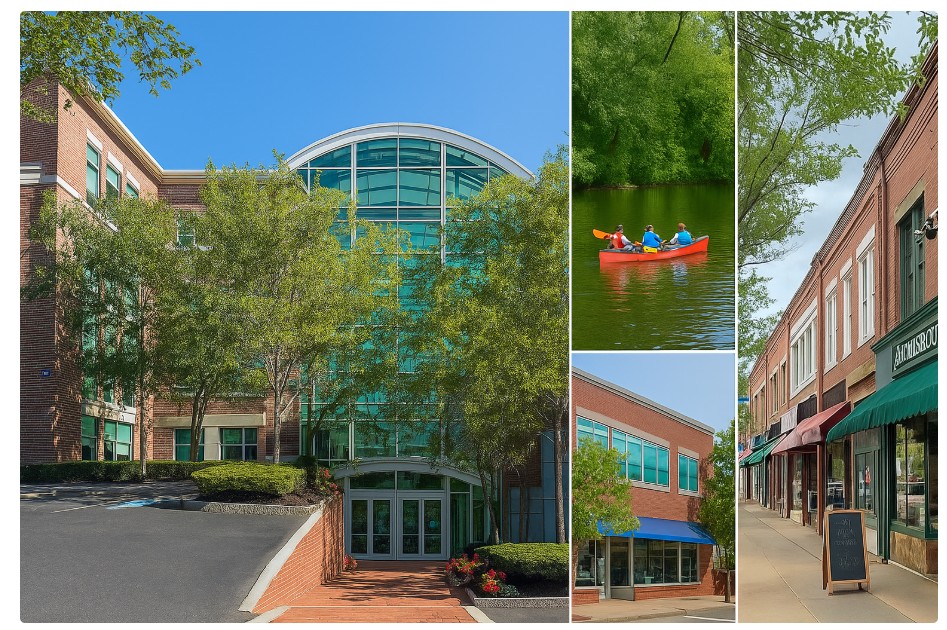Brief History
Auburndale (zip code 02466) is home to our office!

This village began as farmland and woodland lying along the banks of the Charles River, with its earliest major settler, William Robinson, building a house in 1678 on what is now Freeman Street.
Auburndale began as a remote district of farmland, rolling wooded hills, and marsh. Even as late as 1831, only seven families held title to all of Auburndale’s land area. This all began to change, though, when the Boston and Worcester Railroad introduced passenger service to Newton, which ushered in a dramatic new era of development. By 1837, the railroad had been extended through Auburndale.
As suburban development occurred in Newton Corner and West Newton, sharp-eyed real estate speculators looked elsewhere for more opportunities. In 1847, William Jackson and his North Auburndale Land Company opened up Auburndale for a new type of Newton resident – the suburban commuter. Jackson’s company laid out many of the streets north of Auburn Street, a colonial highway established in 1729, and similar development to the south began almost simultaneously.
By 1837, passenger rail reached the area via the Boston & Worcester Railroad, catalyzing its development from rural to commuter-village. There is a commuter rail stop in the heart of Auburndale.
In the late 19th century, the village leveraged its riverfront location: the once-popular Norumbega Park opened in 1897, offering boating, concerts, a zoo and amusement rides along the Charles. This is now the site of the Marriott hotel.
Auburndale retains many historic homes (several on the National Register of Historic Places) and a defined local historic district, emphasizing its heritage.

Village Character & Lifestyle
Auburndale blends suburban ease with village-style charm: tree-lined streets, well-maintained historic houses, and a walkable core around Commonwealth Avenue and Auburn Street. Its river-edge setting adds natural amenities and recreation opportunities.
The village appeals to families, professionals, and those who value proximity to Boston without sacrificing neighborhood character. With access to transit, parks, and a local business district,
Architecturally, you’ll find a mix of 19th- and early 20th-century homes, mid-century residences, and a smattering of newer construction—giving the area visual variety and depth. Housing styles and lot sizes vary, offering options for different preferences.
Schools & Community
Auburndale falls within the Newton Public Schools district, which is well-regarded in the region. The strong schooling system is a draw for families.
The Elementary Schools in Auburndale are Williams and Burr. Auburndale is served by Bigelow Middle School and primarily by Newton North High School.
Community spirit is active: local associations, historic preservation efforts, and village-center businesses enhance the communal feel. The presence of nearby higher-education institutions (for example, Lasell University in the village) adds to the educational atmosphere and local
Location & Commute
Auburndale is one of the villages of Newton, Massachusetts, situated along the Charles River and adjacent to the city of Waltham and other Newton villages – West Newton and Newtonville.
Auburndale is divided into two parts by the Massachusetts Turnpike, which connects it to neighboring villages of Newton and downtown Boston. The village is located adjacent to the intersection of Interstate 90 and I-95.
A number of public transportation options connect Auburndale to neighboring communities. The MBTA Green Line‘s D Branch light rail line serves Auburndale at Woodland and Riverside stations, the latter being the line’s terminus. Both stations have bus connections; Woodland station is served by MWRTA bus routes 1 and 8, while Riverside connects to MBTA bus route 558.
Driving access is convenient: the village is bisected by the Massachusetts Turnpike (I‑90) and intersects I-95/Route 128, offering straightforward connections to Boston, Cambridge and points west. Commute times average around 23 minutes for many residents.
This combination of transit and roadway access makes Auburndale especially appealing for those working in Boston, the Route 128 corridor, or nearby cities.
Parks & Sites of Interest
Auburndale is flush with beautiful, scenic areas because the Charles River runs through it. Norumbega Park Conservation Area: Once a major amusement park, today it offers riverfront trails, canoe access and a scenic green space along the Charles.
Auburndale Cove Park & Playground: A recreational space for families, near the river, with playgrounds and open lawn areas.
The Woodland Golf Club is also located in Auburndale.

Village Center / Plummer Memorial Library: The village hub around Auburn Street includes the historic Plummer Memorial Library and local shops-and-cafés.
Historic Architecture & Stately Homes: With many listings on the National Register (e.g., the Lasell Neighborhood Historic District), the village rewards strolls through its residential streets for architecture lovers.
Demographics & Income
- Population: approximately 8,553 residents.
- Median age: ~35 years.
- Households: ~2,929 households, average size ~2 persons. Owner-occupied ~57.6 %
- Income: median household income ~$170,852; average ~$239,740 (recent data).
- Employment: predominantly white-collar/professional occupations (~96.6 % of working population).
- This data paints Auburndale as a relatively affluent, well-educated, family-oriented community with strong economic indicators.
Housing Market & Home Ownership
Median listing home price in mid-2025: around $1.6 M, with listing prices per square foot in the $574–$622 range.
Average home value around $1,365,099.
Median sale price ~ $1.5 M and price per square foot ~$659.
Ownership: owner-occupancy ~57.6 % (per demographics data).
What This Means for Buyers & Sellers
Buyers:
If you value top-tier schools, historic character, mature neighborhood feel, river access and easy commute into Boston, Auburndale delivers.
Be prepared for high price points and competition—inventory may be limited in this segment.
Consider condition: many homes are older and may require updates or thoughtful maintenance.
Prioritize features that buyers in this area value: historic charm, walkable village center, transit convenience, green space, strong schools.
Sellers:
Your home is in a sought-after market—leverage the area’s strengths: village walkability, heritage architecture, river proximity, strong schools and transit links.
Make sure your home’s presentation reflects the premium nature: curb appeal, modern systems combined with historic fidelity (if relevant).
Price strategically: though values are high, buyers are discerning—well-positioned homes move quickly, while properties needing significant updates may lag.
Highlight community features and lifestyle: access to the river, historic district prestige, village amenities, commuter access – these resonate.
In Summary
Auburndale is a highly desirable village of Newton that marries historic character, river-edge natural amenities, village-scale convenience, strong schools and excellent access to Boston. For buyers seeking a long-term home in a premium neighborhood and for sellers positioned in a strong market, Auburndale offers real strength. The key for both lies in aligning condition, location and lifestyle features with market expectations—when that alignment is achieved, the area delivers both value and quality of life.
Related Links
This content is currently unavailable. Please check back later or contact the site's support team for more information.

